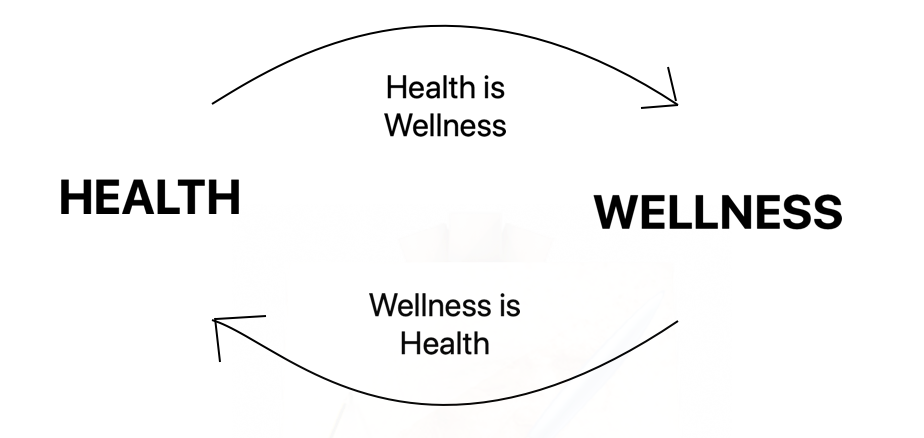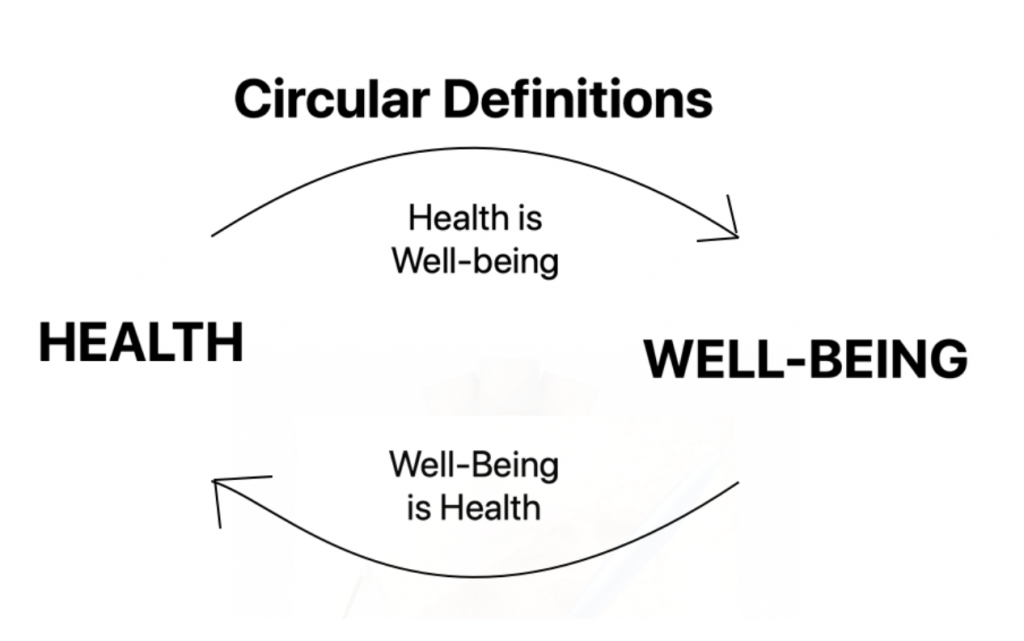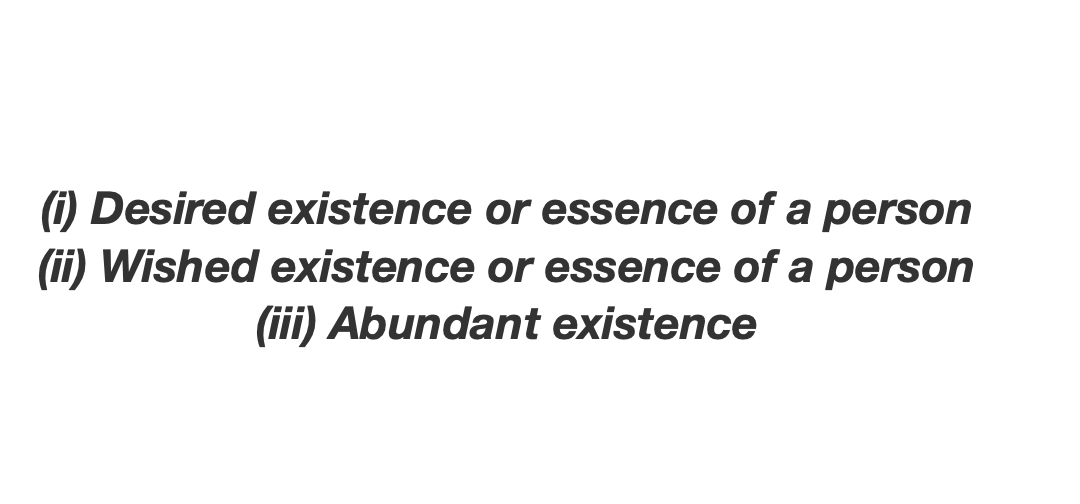This is part 3 of our series where we try and define the words “health”, “wellness” and well-being”.
Part 1 – What is Health?
Part 2 – What is Wellness?
Here will will take a look at “What is Well-Being?”.
1. In our last 2 parts we looked at the questions “what is health?” and “what is wellness?”. We discovered that these words are currently defined circularly in our modern lexicons and thus we never reach clear, concise conclusions to the definitions of these words.

In our attempt to create an accurate and achievable model of health and wellness, we’ll now move on to the word “well-being”.
2. What is “Well-Being”
The World Health Organization defines health as:
“a state of complete physical, mental and social well-being and not merely the absence of disease or infirmity”
As stated in previous parts of this series, this definition leads us down the rabbit hole of circular definitions, where words are defined in their synonyms:

Other examples:
(i) Oxford English Dictionary: “Well-being: the state of being comfortable, healthy, or happy.”
(ii) Collins English Dictionary: “The condition of being contented, healthy, or successful; welfare.”
(iii) Dictionary.com: “a good or satisfactory condition of existence; a state characterized by health, happiness, and prosperity; welfare.”
How we define our language is how we shape our reality. Therefore if we wish to be both “healthy” and “well”, we need clearer, more precise definitions of these all important words. Today the word we will try to define is “well-being”.
3. Etymology of Well-Being
– “Well-being” is a compound word consisting of the root adjective “well” and the gerundive of “be” (“gerundive” – from latin grammar. In this case the English -ing is added to the verb “be” to form the noun “being”).
– “Being” is defined as:
1. existence
2. the nature or essence of a person
That’s as far as we can go before getting into philosophical discussions about existence and nature/essence.
– “Well” is the next word we need to understand. A short history of the word includes:
(i) PIE – root *wel – “to wish, will”
(ii) Proto-Germanic *wela, *wala (“well”, literally “as wished, as desired”)
(iii) Old English wel “abundantly, very, very much; indeed, to be sure; with good reason; nearly, for the most part”.
+ The adjective was in Old English in the sense “in good fortune, happy,”
+ “agreeable to wish or desire” is from mid-15c.
+ “in good health, not ailing” is from 1550s.
+ Well-to-do “prosperous” is recorded by 1794.
In summary, for most of its history the word “well” has been defined as – “to wish, as wished”, “as desired”, “abundantly, very very much”. It’s not until the 16th century do we see the word health being directly associated with the word well.
– Putting all this together, the best estimate we can come to as to the true meaning of the word “well-being” is:
(i) Desired existence or essence of a person
(ii) Wished existence or essence of a person
(iii) Abundant existence
4. Modern Definitions of Well-Being
– In our modern lexicon, the word “well” is defined as:
“in a good or satisfactory way.”
“in good health; sound in body and mind”
These adjectives, “good”, “satisfactory”, “sound” are a far cry from the original definitions of well – “desired”, “wished”.
– As stated previously, the compound word “well-being” is defined broadly as:
“the state of being comfortable, healthy, or happy.”
“a good or satisfactory condition of existence; a state characterized by health, happiness, and prosperity; welfare.”
Summary
– In our journey to understand the words “health”, “wellness” and now “well-being”, we find ourselves encountering the same fundamental issue. These words are all defined in their synonyms, or a process that’s called (lexicographic) circular defining:

– One primary reason for this confusion is that the meaning of words change over time. In an effort to gain clarity we can try to trace back the origin of words using etymology. In this case, we’ve sourced back the word “well-being” to the following:
(i) Desired existence or essence of a person
(ii) Wished existence or essence of a person
– To me, this definition seems like a utopian idea. Can we achieve a desired existence for every person? It’s something we will discuss in future parts of this series. For now, this is the definition we are going to use for “well-being” and next up is taking a look at Dr. Theresa’s definition of the word “wellness”.
